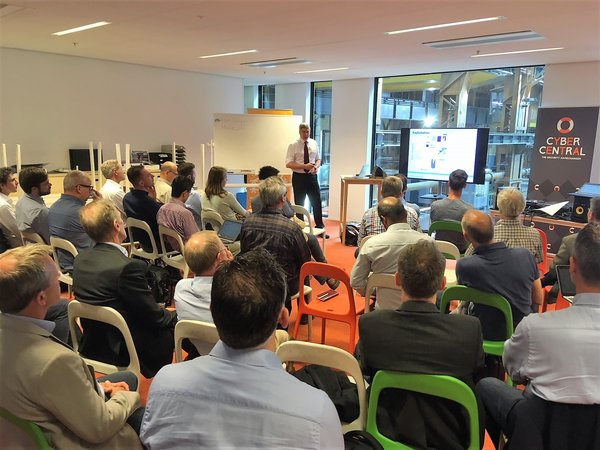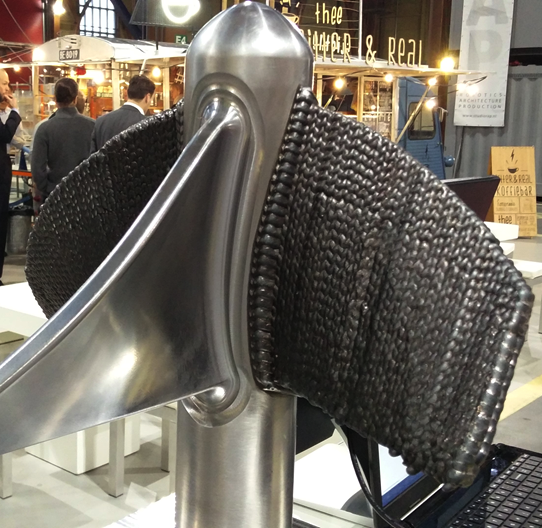AiM2XL
Additive Manufacturing for Extra Large Metal Components
The AiM2XL programme is focused on metal-based additive manufacturing for the construction of large three-dimensional components by means of laser and/or arc welding. Application of these technologies to large-scale constructions poses a number of scientific and technological challenges, as well as providing novel opportunities for Dutch manufacturing industry. TU Delft together with The Materials Innovation Institute (M2i) and RAMLAB initiated an ambitious, fundamental research programme designed to remove the barriers limiting the full exploitation of the wire/laser based additive manufacturing and catapult Dutch industry into the forefront of additive manufacturing technology for large metal parts.
Traditionally, part construction is approached from a processing perspective. In the AiM2XL programme, we propose a material centric approach, in which design for properties plays a key role. Such an approach is not unique to large-scale structures, but is crucial at the large scale due to the relatively high heat inputs involved and the influence of macro–scale property gradients inherent in the deposited materials. A materials focus requires a sound understanding of the link between the thermal cycle and mechanical loading history of a component, which in turn determines the microstructure and resultant metallurgical, electrical and mechanical properties.
The programme involves six closely related research projects at four universities addressing three major research lines of (i) optimisation, (ii) microstructure prediction and control and (iii) microstructure – mechanical property relationships. Optimization involves the development of models capable of optimising shape and properties for a target application as well as models for process control to ensure that the design can be successfully manufactured.
Prediction and control of the microstructure, based upon the thermal and mechanical history of every volume element within a component is required to support the optimisation models. It is essential to establish clear predictive links between local microstructures and resultant properties in order to create the desired properties at the appropriate location within a component.
The scientific content of the programme is managed byProfessor Fred van Keulen A.vanKeulen@tudelft.nl and Dr Marcel Hermans m.j.m.hermans@tudelft.nl, Delft University of Technology in collaboration with the universities of Eindhoven, Groningen and Twente. M2i and RAMLAB have aligned significant industrial participation across the entire value chain for wire and laser-based additive manufacturing, including: Air Liquide B.V., Allseas, Autodesk, Damen, Element Materials Technology, Fokker Technologies Holding B.V., Heerema Fabrication Group, Huisman, Jungle, Lincoln Electric B.V., Lloyd’s Register EMEA, MX3D, OCAS NV, Shell, Trumpf Nederland B.V., Valk Welding B.V. and VandeGrijp International Gear Suppliers B.V.
Contact person M2i: Dr. Ir. Viktoria Savran, v.savran@m2i.nl
Contact person RAMLAB: Vincent Wegener, Vincent@ramlab.com
Aim2XL program started

The kick off meeting of the NWO Perspectief program “Additive Manufacturing for Extra Large Metal Components (AiM2XL)” took place on 15th June at the premises of RAMLAB in Rotterdam. Thirty four participants from industry and academia attended the meeting with the aim of pooling experiences and starting this ambitious program. The Program leader, Ian Richardson, welcomed all the participants and explained the goals. Paul Schuddeboom from NWO further explained the expectations from the funding agency for the program.
The aim of the consortium of 23 partners, organised by the Materials Innovation Institute (M2i), is to generate the knowledge required to competitively build components at length scales of the order 1 to 10 m. Applying direct metal deposition methods to large-scale constructions poses a number of scientific and technological challenges, as well as providing a number of novel opportunities for the manufacturing industry.
The program paves the way for a new, material-oriented approach in which suitable model combinations will be used to design and manufacture material properties on-demand at specific locations within a structure. The successful implementation of the programme will put the Netherlands in a leading position in the production of large metal components.
WAAMpeller; the world's first 3D printed ship propeller

Contact
- i.m.richardson@tudelft.nl
-
Materials Science and Engineering
Delft University of Technology
Mekelweg 2
2628 CD Delft
